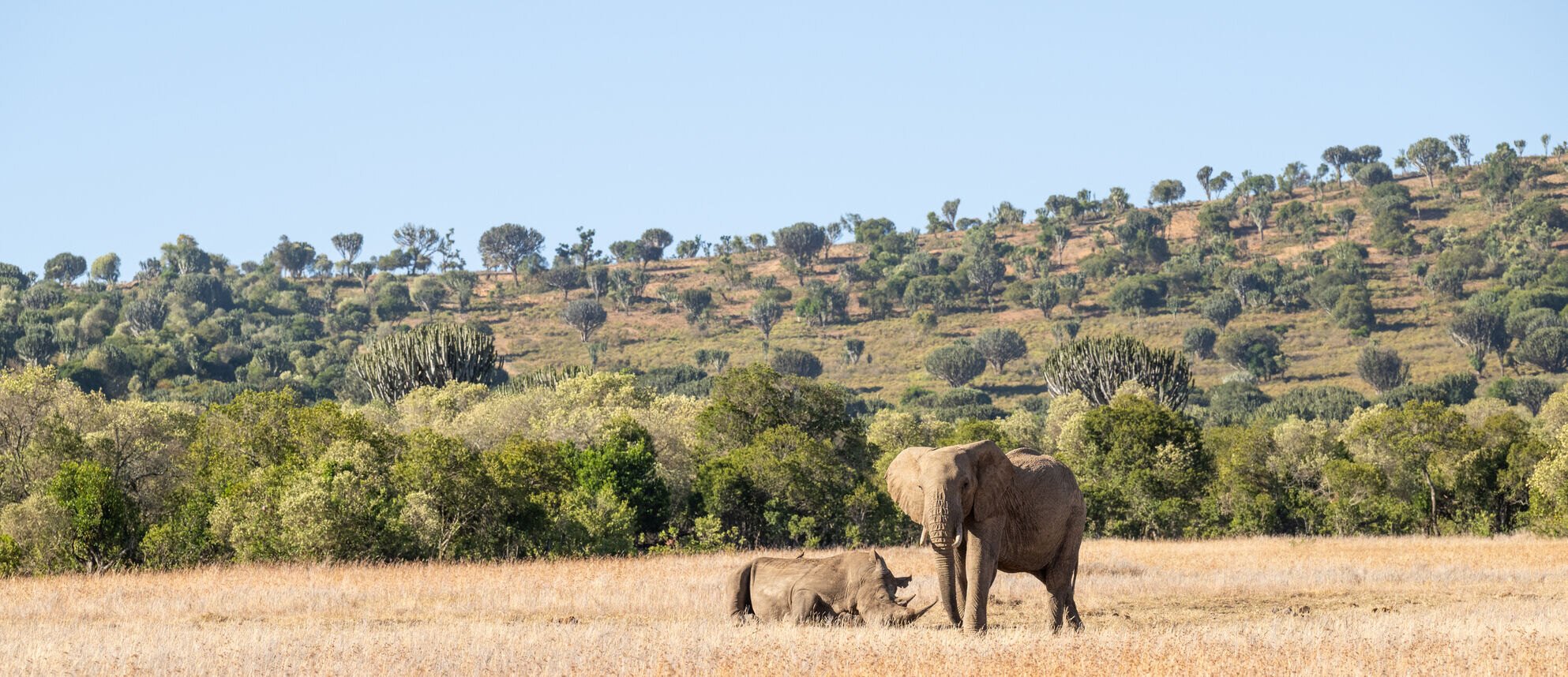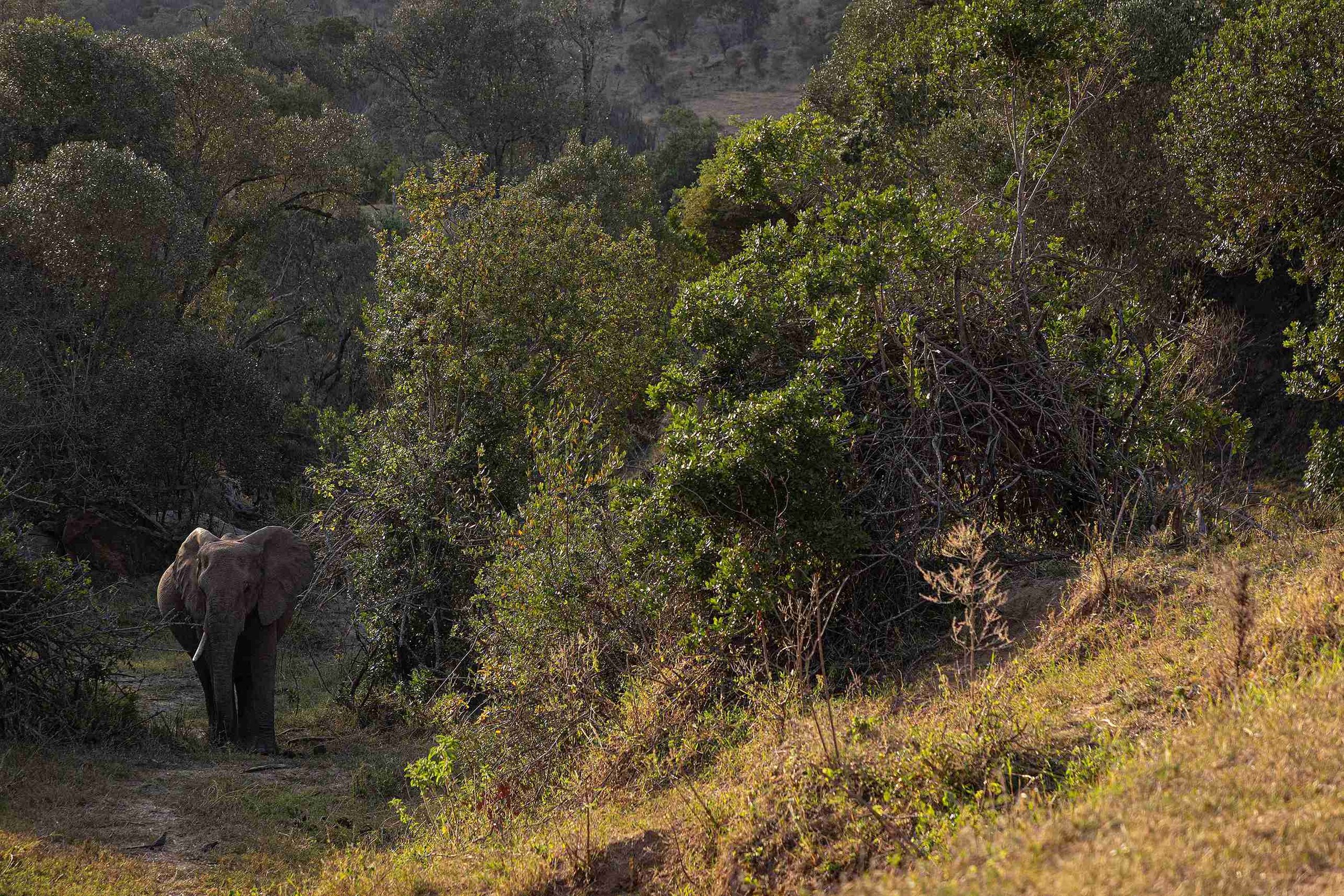
REFORESTING FOR THE FUTURE
Borana Conservancy is embarking on an ambitious reforestation project to restore 500 hectares of indigenous woodland which is mapped out in a way that will connect existing riverine habitats to forest habitats. This initiative will contribute to Kenya’s national goals of achieving 10% forest cover, and contributing to the restoration of 5.1 million hectares of forest.
Borana’s integrated approach to livestock management and wildlife conservation has successfully supported thriving rangelands and biodiversity, including the reintroduction of black rhinos. However, the growing elephant population, a testament to the ecosystem's health, has significantly impacted woody vegetation, creating a challenge which is common across much of the African continent.

Over the next six years, Borana aims to plant one million tree seedlings
To address this, Borana plans to reforest six designated recovery zones with native tree species such as Acacia drepanolobium, Acacia nilotica, pencil cedar, and African olive trees. This effort will not only regenerate woody vegetation and critical habitats for black rhinos but also contribute to carbon sequestration.
Over the next six years, Borana aims to propagate and grow one million tree seedlings and restore 500 hectares of indigenous forest. To achieve this ambitious goal, Borana is seeking $1 million in funding to support the nursery establishment, planting efforts, and long-term maintenance required to bring this vision to life, and creative thinking around independently verified carbon offsets for our guests are being explored.



